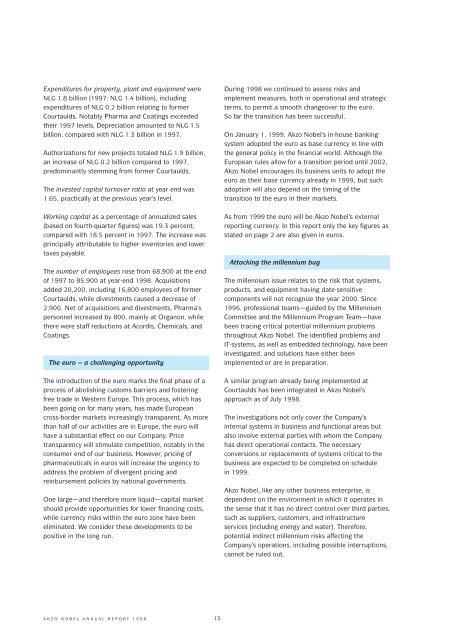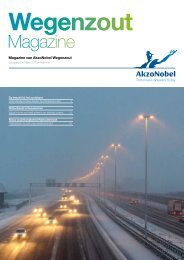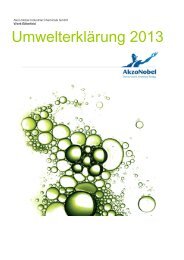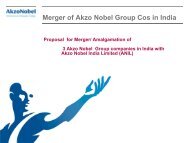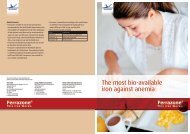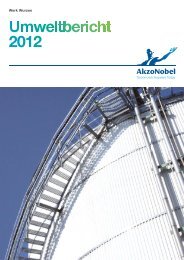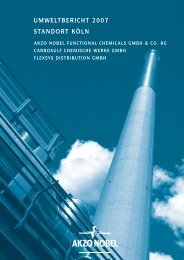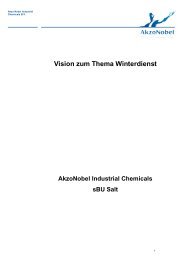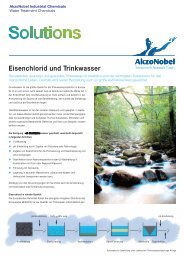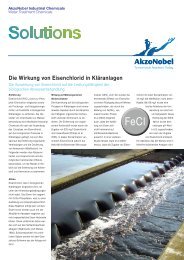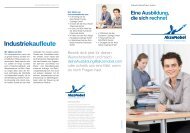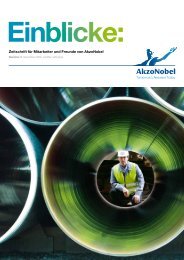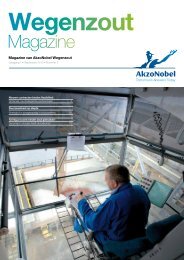Create successful ePaper yourself
Turn your PDF publications into a flip-book with our unique Google optimized e-Paper software.
Expenditures for property, plant and equipment were<br />
NLG 1.8 billion (1997: NLG 1.4 billion), including<br />
expenditures of NLG 0.2 billion relating to former<br />
Courtaulds. Notably Pharma and <strong>Coatings</strong> exceeded<br />
their 1997 levels. Depreciation amounted to NLG 1.5<br />
billion, compared with NLG 1.3 billion in 1997.<br />
Authorizations for new projects totaled NLG 1.9 billion,<br />
an increase of NLG 0.2 billion compared to 1997,<br />
predominantly stemming from former Courtaulds.<br />
The invested capital turnover ratio at year end was<br />
1.65, practically at the previous year’s level.<br />
Working capital as a percentage of annualized sales<br />
(based on fourth-quarter figures) was 19.3 percent,<br />
compared with 18.5 percent in 1997. The increase was<br />
principally attributable to higher inventories and lower<br />
taxes payable.<br />
The number of employees rose from 68,900 at the end<br />
of 1997 to 85,900 at year-end 1998. Acquisitions<br />
added 20,200, including 16,800 employees of former<br />
Courtaulds, while divestments caused a decrease of<br />
2,900. Net of acquisitions and divestments, Pharma’s<br />
personnel increased by 800, mainly at Organon, while<br />
there were staff reductions at Acordis, Chemicals, and<br />
<strong>Coatings</strong>.<br />
The euro – a challenging opportunity<br />
The introduction of the euro marks the final phase of a<br />
process of abolishing customs barriers and fostering<br />
free trade in Western Europe. This process, which has<br />
been going on for many years, has made European<br />
cross-border markets increasingly transparent. As more<br />
than half of our activities are in Europe, the euro will<br />
have a substantial effect on our Company. Price<br />
transparency will stimulate competition, notably in the<br />
consumer end of our business. However, pricing of<br />
pharmaceuticals in euros will increase the urgency to<br />
address the problem of divergent pricing and<br />
reinbursement policies by national governments.<br />
One large—and therefore more liquid—capital market<br />
should provide opportunities for lower financing costs,<br />
while currency risks within the euro zone have been<br />
eliminated. We consider these developments to be<br />
positive in the long run.<br />
AKZO NOBEL ANNUAL REPORT 1998<br />
13<br />
During 1998 we continued to assess risks and<br />
implement measures, both in operational and strategic<br />
terms, to permit a smooth changeover to the euro.<br />
So far the transition has been successful.<br />
On January 1, 1999, Akzo Nobel’s in-house banking<br />
system adopted the euro as base currency in line with<br />
the general policy in the financial world. Although the<br />
European rules allow for a transition period until 2002,<br />
Akzo Nobel encourages its business units to adopt the<br />
euro as their base currency already in 1999, but such<br />
adoption will also depend on the timing of the<br />
transition to the euro in their markets.<br />
As from 1999 the euro will be Akzo Nobel’s external<br />
reporting currency. In this report only the key figures as<br />
stated on page 2 are also given in euros.<br />
Attacking the millennium bug<br />
The millennium issue relates to the risk that systems,<br />
products, and equipment having date-sensitive<br />
components will not recognize the year 2000. Since<br />
1996, professional teams—guided by the Millennium<br />
Committee and the Millennium Program Team—have<br />
been tracing critical potential millennium problems<br />
throughout Akzo Nobel. The identified problems and<br />
IT-systems, as well as embedded technology, have been<br />
investigated, and solutions have either been<br />
implemented or are in preparation.<br />
A similar program already being implemented at<br />
Courtaulds has been integrated in Akzo Nobel’s<br />
approach as of July 1998.<br />
The investigations not only cover the Company’s<br />
internal systems in business and functional areas but<br />
also involve external parties with whom the Company<br />
has direct operational contacts. The necessary<br />
conversions or replacements of systems critical to the<br />
business are expected to be completed on schedule<br />
in 1999.<br />
Akzo Nobel, like any other business enterprise, is<br />
dependent on the environment in which it operates in<br />
the sense that it has no direct control over third parties,<br />
such as suppliers, customers, and infrastructure<br />
services (including energy and water). Therefore,<br />
potential indirect millennium risks affecting the<br />
Company’s operations, including possible interruptions,<br />
cannot be ruled out.


